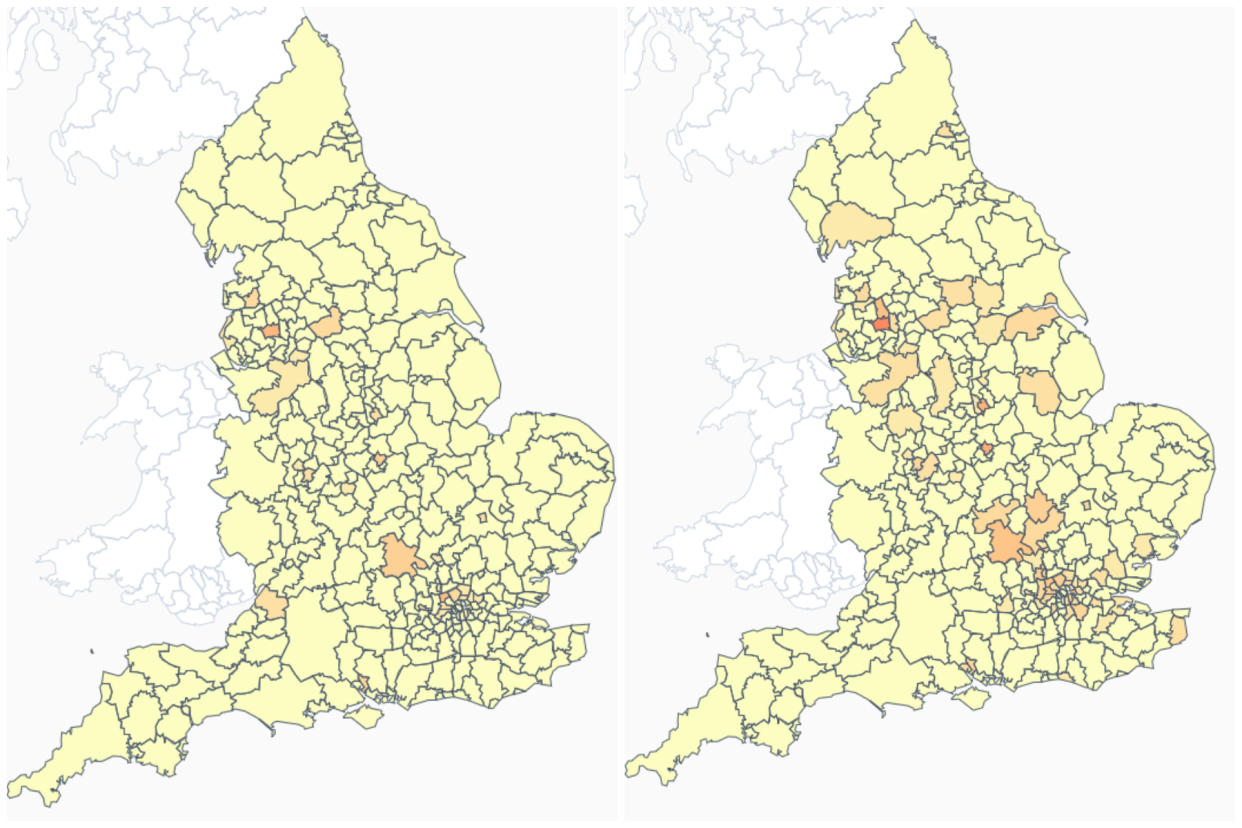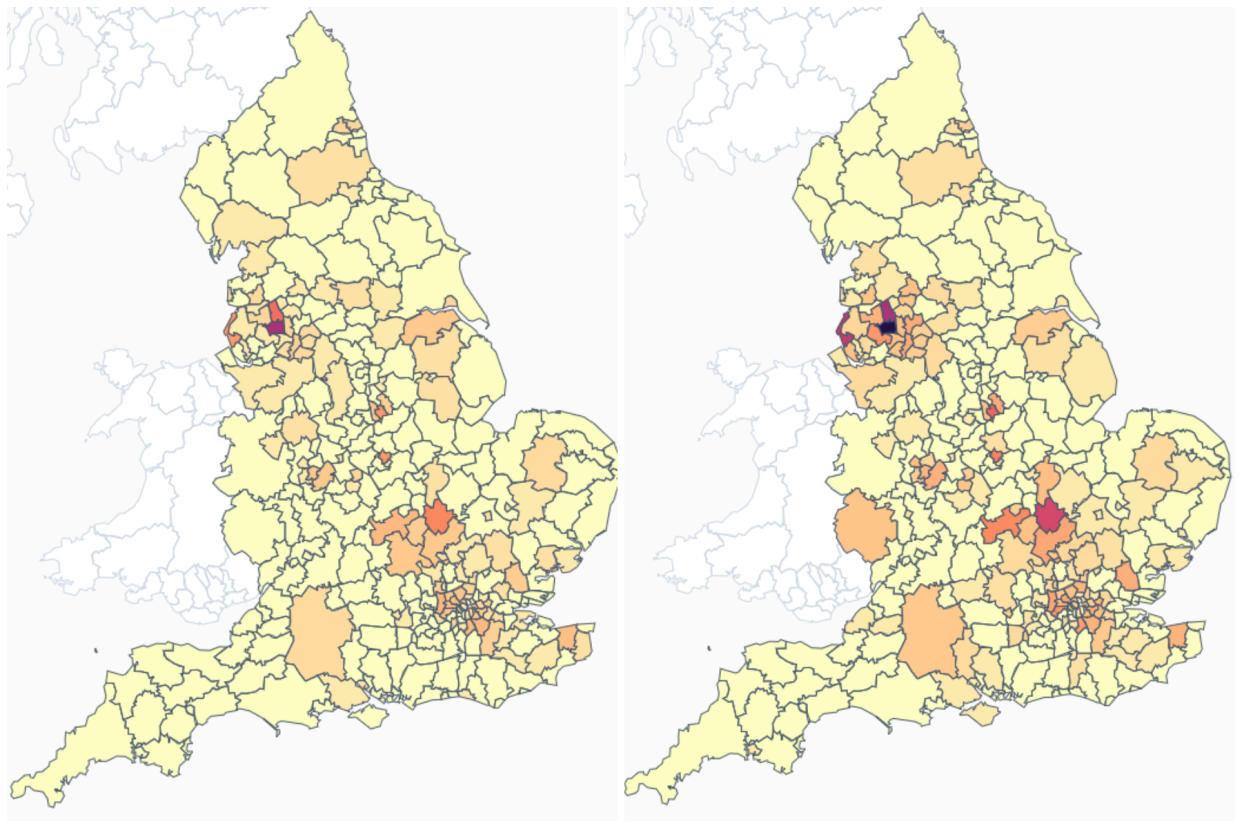4 maps that show how the Indian COVID variant spread across England in 4 weeks

Coronavirus experts have created four maps to demonstrate the extent to which the Indian variant spread across England over four weeks.
The maps pictured below are the latest from genomic sequencers at the Wellcome Sanger Institute, and show how the picture changed in England between 17 April and 8 May.
The darker the shades in each area, the higher the incidence of the B.1.617.2 variant of concern.


The fourth map, showing prevalence of the variant on 8 May, demonstrates higher numbers in the Bolton, Blackburn with Darwen and Bedford local council areas: all places where there have been surge testing or vaccine drives over the past week.
It comes as health secretary Matt Hancock announced in the House of Commons on Wednesday there have now been 2,967 confirmed B.1.617.2 infections in the UK.
This is more than double the number – 1,313 – announced by Public Health England on Thursday last week.
Hancock also announced surge testing in five further areas in response to the spread of the variant: Burnley, Hounslow, Kirklees, Leicester, and North Tyneside.
In the past week, there have been concerns the variant could delay the government’s plan to lift all lockdown restrictions on 21 June.
Watch: We have increasing confidence vaccines are effective against all variants, says Boris Johnson
At Prime Minister’s Questions, Johnson said the latest data indicates jabs are working against all variants of the virus.
This followed further positive news earlier on Wednesday, when Professor Neil Ferguson – the Imperial College London scientist whose modelling convinced the government to impose the first national lockdown last spring – said the variant may not be as transmissible as initially feared.
He told BBC Radio 4's Today programme: “We’re trying to work out if the rapid growth we’ve seen in areas such as Bolton is going to be typical of what we could expect to see elsewhere, or if it is what’s called a 'founder effect' – which is often seen in these circumstances.
"There’s a glimmer of hope from the recent data that while this variant does still appear to have a significant growth advantage, the magnitude of that advantage seems to have dropped a little bit with the most recent data so the curves are flattening a little."
Read more:
But he stressed it will take “a little more time before we can be definitive about that”.
Johnson said on Tuesday there was no “conclusive” evidence to deviate from the road map out of lockdown, having previously said the variant could jeopardise it at Friday’s Downing Street press conference.
Watch: PM and Starmer clash over travel list during PMQs



